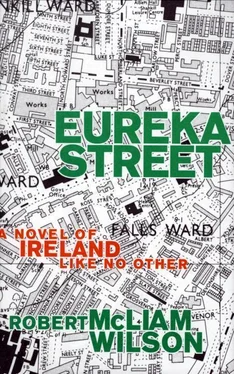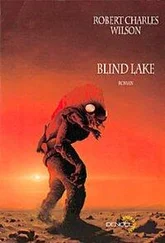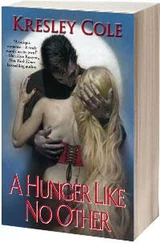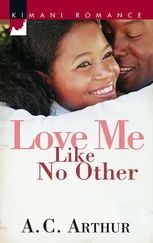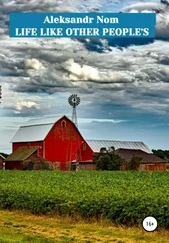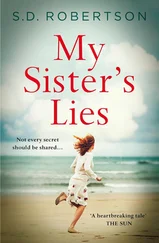Such failings were evident also amongst the policemen and women sent to inform relatives of the identified dead. Appalling reluctance was shown to execute this task.
The only real professionalism was amongst the reporters and cameramen on the scene and at the hospitals. They demonstrated real vigour and real hunger for their job. They thrust cameras and microphones everywhere. One German journalist even pointed his microphone at a corpse on a gurney.The other local journalists laughed at that. They had stopped asking questions of the dead a long time before.
By midnight, many of those involved had returned home. The police, the paramedics and medics, the bereaved and the workers at the bomb-site. The day brought an odd unifying phenomenon to many of them. That night, many thought, while drinking a cup of coffee, brushing their teeth, watching a film or locking a door, What a strange thing to be doing after what I've seen. Many felt as though their insides were hairy and itching. It was a most unaccustomed feeling, one they could not explain.
There was another unifying phenomenon. All of those people possessed a new knowledge. For all their lack of understanding, they comprehended something of which they had been ignorant. Some had learnt a new respect for the fragility of flesh, some thought they had learnt something about the possibilities of human cruelty, but there was only one knowledge common to all.
They had all learnt that from revolution runs blood, runs all our human waters.
The Fountain Street dead were Rosemary Daye (hips and hair), Martin O'Hare (aspirant astronomer), Kevin McCafferty (unemployed, couldn't sing), Natalie (not a long story), Liz (liked Brad Pitt) and Margaret Crawford (resented washing dishes), John Mullen (never ate his salad and bacon bac uette), Angie Best (the owner, a forty-two-year-old divorcee with two children and a twenty-five-year-old lover she was about to dump), William Patterson (never niet hinm), Patrick Somebodyor-other, a woman called Smith and six unnamed others. The list is pointless. The list is easily forgotten.
Named, unnamed. Remembered, forgotten. They all did that trick the dead do. Whether they died immediately, more or less immediately or later, they all did that trick. From living human to fastest transition in the world.
To sum them up is pointless and impossible. When she was twenty-two, Angie Best passed her driving test and experienced an ecstasy and sense of freedom so extraordinary that no subsequent experience ever matched its intensity. Her driving-test examiner, a man called Murray, remembered her joy for the rest of his life. He liked to recall her on rainy Wednesdays when he'd had to fail more than one candidate.
They all had stories. But they weren't short stories. They shouldn't have been short stories. They should each have been novels, profound, delightful novels, eight hundred pages or more. And not just the lives of the victims but the lives they touched, the networks of friendship and intimacy and relation that tied them to those they loved and who loved them, those they knew and who knew them. What great complexity. What richness.
What had happened? A simple event. The traffic of history and politics had bottlenecked. An individual or individuals had decided that reaction was necessary. Some stories had been shortened. Some stories had been ended. A confident editorial decision had been taken.
It had been easy.
The pages that follow are light with their loss.The text is less dense, the city is smaller.
But Fountain Street is an incidental detail. The site itself is a distraction, the event, in some ways, an irrelevance, the toll a technicality. Such bombings, such murders do not really involve the people involved. The deaths and the maimings are a meaningless by-product. The victims are mostly random, entirely obscure. No one is interested in them. Certainly not the bombers. It is the rest of us who matter.
Such events are a message. They are designed and supposed to tell us something. To show us something, at any rate. The actions are not ends in themselves. They are demonstrations. Look at what we can do, they say. Look at what we can do to you.
We are terrified. We are meant to be terrified. That is why it is called terrorism.
Thus the reaction of the general citizenry is the substance of such events, the product, the commodity in this robust PR. And the reaction of the citizenry was this:
Jake Jackson, Ronnie Clay and Rajinder Singh had all comprehended the fact of the explosion at one and the same time. At 1.15 p.m. they stood or sat on the roof of the Europa Hotel with their workmates, lunchboxes on their laps, sandwiches to hand and mouth. They heard the unmuffled bang of a proximate detonation. There was a mild waft in the air. Several went to the edge of the roof and looked about them.
`Came from over there,' suggested Ronnie, pointing westwards towards the Grosvenor Road.
Rajinder gestured towards the city centre where they could see a large dark ball of dust linger, tremble and disperse in the mild breeze.
`Where's that?' asked Billy.
`Castle Street,' said one.
`Nah, Royal Avenue,' suggested Ronnie.
`Looks big,' said Jake.
A siren began to wail, building pitch and volume.
`Didn't hear any sirens before, said one man.
`Does that mean there was no warning?' asked Rajinder.
'Who knows?' answered Jake. `They don't need sirens to evacuate buildings for a bomb scare'
The men looked at one another silently. Several returned to their original positions and recommenced their luncheon. Ronnie shrugged his shoulders and joined them. After a couple of minutes, only Jake and Rajinder were left at the edge of the roof. For some time they stared towards where they could still see the remnants of the dust cloud linger in the air like a stain.
Rajinder looked at Jake uncertainly. `I have a bad feeling.'
Jake glanced back at the ebbing dust plume. 'I hope you're the only one!
In common with 84,637 other people in Northern Ireland, Luke Findlater discovered that a big blast had occurred in the very first radio report of the incident on that day. Every lunchtime he listened to an eccentric agricultural programme on Radio Ulster called Farming Ulster Update. He heard, with delight, items about silage management, pig-farming and sheep-dip. The Englishman knew that it was probably some crass patrician taste for obscure kitsch but it genuinely charmed him.
Within only twelve minutes of the explosion in Fountain Street, the presenter of this programme had stopped speaking, fumbled with some paper and announced in an uncertain voice that he had received unconfirmed reports of a serious explosion in Belfast city centre and that several people had been killed.
The man's voice, so associated with the risibly mundane matters of manure and chicken-crops, formed those words strangely. The effect was disturbing. Luke felt cold. He sat back in his chair with a peculiar sensation. He looked around the office. He had not lived long enough in Northern Ireland to find such things usual, customary The furniture in his room, the very stationery seemed grotesquely commonplace under the circumstances.
Luke had been about to send a fax. Now he proceeded to send that fax. He stood by the machine, feeding the paper through, feeling the unaccountable, unanswerable consciousness of something inappropriate.
Fifteen minutes later, when Septic Ted learnt of the bomb he felt nothing quite so complicated as the feelings that had oppressed Luke. He was a veteran. He had lived in that city all his life. He knew several of the scores.
He had taken the day off work and was lounging on a sofa watching daytime television. He had nearly dozed off when the news flash appeared. He drank another mouthful of beer and burped acidly.
Читать дальше
